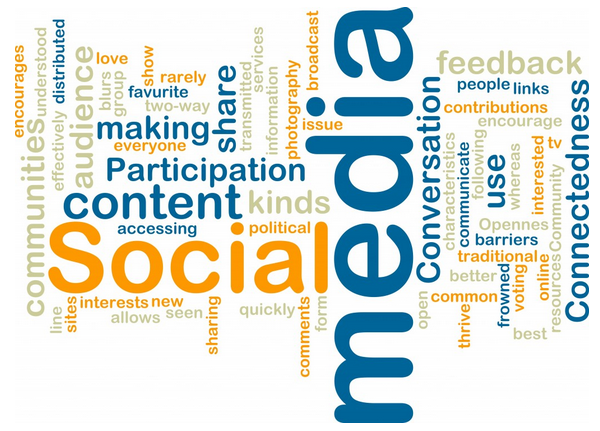Privacy: The Other Side of Social Media in Church
This past Sunday, churches across the country celebrated Social Media Sunday-a coordinated effort begun in the Episcopal Church to increase congregational use of social media tools.
 It was a huge success by any number of measures, and speaks to the traction social media is gaining in congregational life. Increasingly, congregations are talking about all the up sides to using Facebook, Twitter, Pinterest, Instagram, etc.
It was a huge success by any number of measures, and speaks to the traction social media is gaining in congregational life. Increasingly, congregations are talking about all the up sides to using Facebook, Twitter, Pinterest, Instagram, etc.
But there is a side to social media that isn't being addressed, and it's important that we begin the discussion now. For it presents a far greater threat to social media's use in church than apathy or aging demographics.
It's privacy.
The discussion is all around us, and is surely in your parishoners' heads. Consider the following basic stats:
- According to Pew Research, 86 percent of people are taking steps to mask or remove their digital footprints.
- A Harris Interactive Poll showed 80 percent of people have changed the security settings on their devices, most in the past six months.
And recent news stories aren't improving the situation. Last week it was revealed that Facebook undertook a psychologicalexperiment on some 700,000 of its users. Their newsfeeds were changed-without their knowledge-to show more positive of more negative news content. Facebook wants to know if it can affect your mood. (Results? It can.)
And this is only scratching the surface.
Run for the Hills?
 To be sure, there are some who look at these facts and pronounce that social media is evil and destructive and that we should all simply unplug.
To be sure, there are some who look at these facts and pronounce that social media is evil and destructive and that we should all simply unplug.
Before taking that approach, consider this. Companies and marketing groups have been spying on you for years. Remember pre-internet days when you'd sign up for a free contest, only to have your phone ring off the hook for 6 months when the sponsoring company sold your information? Or all that junk mail you use to get? That's right, companies were sharing names and information so they can target you.
Social media has simply made this easier for corporations (and governments) to do.
Moreover, while we (rightly) get angry with Facebook and Google, it is becoming more and more difficult to live without them. From the email services that we depend on, to online bill pay and banking and the convenience of shopping online, there are many, many benefits to the society we now live in. We're not likely to give that up anytime soon.
What we are doing is becoming smarter about what we share, and weighing the risks.
Faith Communities' Key Role-Embracing the Sunlight
Certainly, people today are more nervous about privacy issues. But they also show no sign of dropping their mobile phones, iPads, or laptops.
If we've learned anything over the past two years, it's that people generally understand the trade-offs and still believe the risk is worth it. What they have no patience for are organizations that routinely lie about privacy regulations.
It's not, for example, that Facebook does the things it does, but that it consistently misleads about your ability to opt out, or how much control you really have. The same is true of Google, which recently announced, for example, that your email isn't private at all.
With this in mind, here are three simple things every church can do to raise your congregation's level of confidence in social media, and help them live into the power it provides the church for connecting both internally, and externally.
- Secure permission: There's nothing more distressing than opening a church web page, or seeing a Facebook post, with your picture splashed on it-and no one asked permission. When writing a story about someone, it's routine to seek permission to use a person's name. The same should be true of your members. You should have a record of who does, and doesn't, want their images used online, in print, or in any marketing pieces you might produce.
- Disclose, disclose, disclose: Do you have a church e-newsletter? Offer online giving? Both of these very common tools give you the power of observing your congregation's behavior. You know who clicks and who opens newsletters. What articles they read and who they share them with. You know what time of the day they do this. And you know how often. The same is true of many online giving platforms. You know precisely when they give, how they chose to produce those gifts, and you can easily track their giving history over time. I routinely encourage congregations to use this data to their advantage. For example, when looking for volunteers, you can reach out to people who have opened and read articles about feeding the homeless. Most of your members understand this-but they like to be asked. So disclose how you use their information-and how it won't be used. And stick to it.
- Talk about it: Whether your church chooses to engage social media or not, your members deal with it every day. Even those who consider themselves low-tech and loathe social media, are opening themselves up to data mining every time they charge something, or visit a website. We live in a very different world. And as people of faith, Matthew's observation that "you are known by your fruits" takes on a more complex reality.
Yes-our understanding of privacy is changing rapidly. This isn't the first time it's happened. Many of the same concerns were voiced when the telephone came into common use. And when computers first made their appearance in the work place. And when security cameras began popping up like so many ant hills during the summer.
Greater challenges are ahead. Facial recognition software is further eroding the idea that our lives are private. Wearable technology is raising deeply profound questions-does a Google Glass wearer have the right to "research" you while talking with you? Can they photograph you without permission?
These are difficult legal, and moral, issues. And as people of faith, we have a prominent role to play. And it begins by learning to use these tools honestly, and openly, in our own communities.
